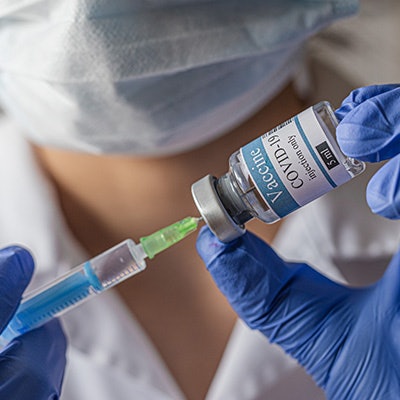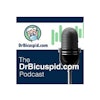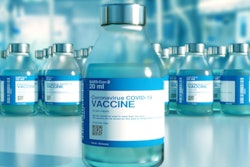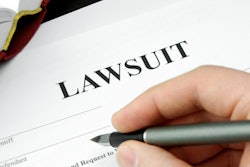
Dentists are well poised to discuss and advocate for COVID-19 vaccines, according to a study published on March 24 in the Journal of the American Dental Association. More than half of parents said a healthcare professional could influence their decision to allow a child to receive a COVID-19 vaccine.
Researchers from the Cincinnati Children's Hospital Medical Center at the University of Cincinnati conducted a 41-question survey to better understand caregivers' thoughts and beliefs regarding COVID-19 vaccines. While nearly 40% of parents said they would not allow their child to receive a COVID-19 vaccine, many also said a healthcare professional could change their mind.
"Dentists, intimately aware of the suggested risks of aerosol generating procedures, can play a critical role in educating the public about the importance of accepting a COVID-19 vaccine," wrote the authors, led by pediatric dentistry resident Dr. Ronnie Marquez.
Vaccination is a crucial aspect of containing the COVID-19 pandemic. It is also an important concern for dental professionals, who may perform aerosol-generating procedures on asymptomatic patients.
To better understand vaccine acceptance, the researchers surveyed 99 caregivers of pediatric patients at two dental clinics associated with their institution. The caregivers answered questions about their demographic information, intention to vaccinate themselves and their children, and factors that could influence their vaccination decisions.
The authors conducted the study from September 28 to November 10, 2020, which was before the U.S. Food and Drug Administration (FDA) granted emergency use approval to the first COVID-19 vaccines. The survey was also limited to English-speaking caregivers.
| Caregiver acceptance of COVID-19 vaccines | |||
| Yes | No | Unsure | |
| Accept vaccine for a child | 22% | 39% | 39% |
| Accept vaccine for myself | 20% | 42% | 38% |
Many caregivers said they were unsure whether they would accept a COVID-19 vaccine for themselves (38%) or their child (39%). Of caregivers who were decided, more said they would not accept a vaccine for themselves or their child.
Caregivers also demonstrated a lack of perceived severity of COVID-19, the authors wrote. Only about one-third of caregivers thought their child was at risk for getting COVID-19. Another 45% agreed their child would get sick from the virus and 32% thought their child could be hospitalized as a result of SARS-CoV-2 infection.
Many parents were also skeptical about the effect of vaccines. Just about one-quarter of caregivers said a vaccine may prevent their child from getting sick with COVID-19, and about one-third said the vaccination could help stop their child from getting other children sick.
"This barrier of perceived benefits of vaccination represents another hurdle that dentists will have to surmount when discussing vaccinations with caregivers," the authors wrote.
A total of 48% of caregivers knew someone who had COVID-19, and almost one-quarter knew someone who had been hospitalized. Caregivers who knew someone with COVID-19 were more likely to accept a COVID-19 vaccination, and the authors also found a significant association between knowing someone with COVID-19 and believing that wearing a face mask helps prevent the spread of COVID-19.
Overall, the caregivers believed in general vaccinations, with 94% of children being up to date on their vaccines and 47% receiving the yearly flu vaccine. Interestingly, of the 47% of parents who allow their child to receive a yearly flu vaccine, only 40% said they would allow their child to receive a COVID-19 vaccine.
Caregivers also readily followed the advice of dental professionals. Nearly 100% of caregivers always allowed radiographs and 93% always allowed fluoride for their child when recommended by a dentist. About half of respondents also said a recommendation from dentists and other health professionals would influence their decision to vaccinate their children against COVID-19.
"Dentists play a critical role in educating the public about the importance of accepting a vaccine at a time when skepticism may be high," the authors wrote.
It's important to note that the FDA has not yet granted emergency authorization for the use of COVID-19 vaccines in children under the age of 16, which likely influenced the survey results. And while the findings are limited by a small number of participants and a lack of regional or cultural diversity, the authors still recommend dental professionals talk about COVID-19 vaccines with patients.
"Dentists are in a unique position to discuss and advocate for vaccine acceptance," the authors wrote. "If a COVID-19 vaccine is not widely accepted, risks associated with performing aerosol generating procedures will remain."



















